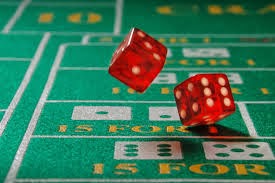If you want to be a successful online casino player, you should read through the casino strategy articles here on Casino Games Casino Source of Data Play Free Bingo. By making the right strategic decisions during the game, you can improve your chances of winning in almost all casino games. Just by knowing the odds and odds before you start the game, or just by sound monetary management.
Despite what you may have heard , blackjack is a game of skill indeed. Of course still the chance determines the outcome of a single hand, but this random evens out in the running of the time . Knowing when to take a hit and when to hold , is what determines your success as a blackjack player .
Slots Strategy
The online world is full of slot machines. It would be impossible to describe them all , or even to mention by name . Nevertheless, there are a number of tips and ideas regarding the best way of playing slots. We will deal with the most important strategy concepts to slot games in the following article. So stay tuned!
Online Card Games free to play, solitaire game for kids
Video Poker Strategy
Can you play video poker to win? Actually, yes . Video poker is one of the few casino games that you can beat . You will not really be a professional video poker player , but if you're looking for casino game , except the traditional poker where you can expect a positive value, then video poker is your game. Here you can read how to win at video poker .
Craps Strategy
 Few
people who have spent a certain amount of time to study the wealth of
current online gambling opportunities would probably argue that Craps is
a game that has made the transition from land based casinos to their
online counterparts, with great success. The natural consequence of this is that more people are trying to get the critical aspects of craps strategy in the handle .
Few
people who have spent a certain amount of time to study the wealth of
current online gambling opportunities would probably argue that Craps is
a game that has made the transition from land based casinos to their
online counterparts, with great success. The natural consequence of this is that more people are trying to get the critical aspects of craps strategy in the handle .Roulette Strategy
Because roulette is a game of luck , you might think that it is really impossible to give any advice about the game. But it is not! There are a few tips on how you can be a smarter roulette player . A casino strategy is important to be a successful player , so read more about it here !












